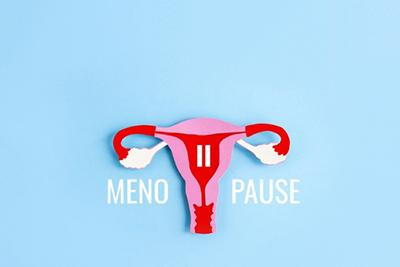
FAQs About Menopause
What Is Menopause?
Menopause is a condition that starts to affect women between the ages of 45 and 55. It is a period of significant change within a woman’s body that marks the end of her reproductive years. You are said to be in menopause when you haven’t had a menstrual cycle or period for 12 months or more.
Natural menopause is caused by:
- Decreased estrogen levels
- Loss of ovarian follicular function – your ovaries no longer release eggs.
Surgical procedures such as a hysterectomy may cause early-onset menopause. Before menopause, you may experience perimenopause, which is characterized by varying levels of estrogen and progesterone in the body affecting the regularity of your period and flow.
What Are the Symptoms of Menopause?
Menopause has several symptoms and the severity of these symptoms varies greatly from mild to moderate to severe. Each woman is different. However, the most common symptoms are:
- Initially, an irregular period during perimenopause followed by the end of your period for 12 consecutive months.
- Hot flushes and night sweats
- Poor sleep quality
- Weight gain
- Anxiety and depression
- Vaginal dryness and painful intercourse
- Incontinence
While these symptoms can be unpleasant, there are therapeutic options and medications to make them more manageable.
How Long Does Menopause Last?
Once menopause begins, it may last for approximately seven to fourteen years. Importantly, menopause is 100% normal and almost every mature woman will experience menopause during their lifetime.
What Are My Treatment Options?
The team at Advanced Women’s Healthcare provides OB-GYN services to Bloomington, IL, patients experiencing menopause and offers comprehensive treatment options for relieving menopausal symptoms.
Treatment for menopause falls into two categories.
- Hormone therapy options
- Non-hormone therapy options
Hormone therapy options, usually hormone replacement therapy (HRT), replace the absent hormones in the form of a pill, patch, or gel. These medications should work to alleviate the symptoms the loss of your hormones is causing, but require monitoring to determine whether they are working effectively for you.
Non-hormone therapy options are linked to your symptoms and may include medications to relieve hot flashes and night sweats, mood swings, and more. Your doctor may recommend certain lifestyle changes and vitamins to help counteract your symptoms as part of a more holistic approach.
Contact Us!
For accessible and exceptional OB-GYN care in Bloomington, IL, and the nearby areas, choose the brilliant team at Advanced Women’s Healthcare, where every patient is important. For any questions about menopause or to schedule an appointment, call us now at 309-808-3068.
Leave a reply
Leave a reply